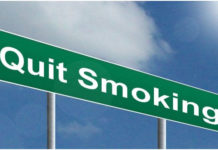Most of us will, at some point or another, be prescribed some kind of a painkiller. Maybe you broke your arm, or maybe you’re recovering from surgery. Either way, painkillers are a commonly prescribed treatment for any kind of chronic pain. Most of the side effects seem pretty tame and in line with what you’d expect from a prescription drug, like nausea and fatigue.
However, there are hidden dangers in prescription pills, and the effects they can have on your skin, hair, and beyond become clear very quickly.
Prescription Painkillers –
Even with regular, prescribed use, prescription painkillers can do serious damage to the body. Your skin will often take the first hit. Hydration is one of the most important factors in skin care, and since painkillers can often dehydrate the body, your skin will suffer. Many who take prescription painkillers experience rashes and hives across the body, along with a bright red flushing of the skin. This is usually very visible, as some painkillers can also make the skin look pale and clammy. Your body may also sweat a lot, which means that not only are you losing nutrients, but you’re becoming even more dehydrated. With all this happening to the skin, some people feel the need to itch and pick at their skin, meaning that not only will your skin look worse, but it will take far longer to heal. Dehydration doesn’t just affect your skin though; the lack of water in your body can take a toll on almost anything, including your hair and nails.
Just like your skin, your hair and nails also require you to be well hydrated to remain healthy. Even in short term use, those using prescription painkillers see their hair and nails suffer. It doesn’t take long for finger and toenails to become dry and brittle. Cracked nails can happen easily, leading to even more visits to the hospital. Your hair will often suffer similarly. For hair to stay healthy, it needs the right balance of nutrients, oils, and hydration. With prescription painkillers, it’s easy to lose most if not all of these. Some of the most common side effects of prescription painkiller use are nausea, vomiting, and sweating. Not only will all of these lead to extreme dehydration, but you’ll also lose quite a few vitamins and nutrients through sweat and lost food. Your hair’s natural oil will suffer as well. Just like your skin, your hair produces and uses oil from the scalp to maintain health and strength. Prescription pill abuse can affect your hair in one of two ways: by producing too little oil due to dehydration, or producing too much of it due to fatigue.
Fatigue –
Fatigue is the most common symptom of virtually all prescription painkillers. In normal sleep, our body produces natural oils that help keep our hair looking and feeling healthy, and we wash our hair if it feels too oily. When using prescription painkillers, sleeping or experiencing heavy fatigue for hours on end isn’t at all uncommon, and often results in the body producing an excess of oils, which can make both the skin and hair feel greasy. Washing your hair might not remove all these oils either, and they can accumulate again pretty quickly. Many who experience the fatigue and drowsiness of painkillers feel like they have a lot less time awake during the day, and it’s easy to let hair and skincare routines fall by the wayside.
Painkiller Side Effects –
Even with the right care and attention, your body still might not be able to fight the powerful side effects of prescription painkillers. Some may choose to go to a luxury rehab center to address their problems with prescription medication, where holistic treatment can help to look at the bigger picture. One common side effect that also arises from dehydration is dry mouth. While the severity of dry mouth can change from person to person, it can do serious damage, even in mild cases. When the body is dehydrated and experiencing dry mouth, the first thing to go is saliva. Saliva is an incredibly important part of dental hygiene because it helps keep teeth healthy and rids the mouth of bacteria. Without it, people can often expect to see tooth decay develop relatively quickly. Bad breath follows next, as without saliva to get rid of bacteria, it remains in the mouth causing halitosis. In extreme and prolonged cases, dry mouth can actually cause tooth loss.
While the side effects can be very serious, prescription painkillers are sometimes the only option we have to deal with chronic or very serious pain. Some who take these drugs may only experience one or even none of the side effects listed. However, keeping in mind how dangerous they can be is important. That, coupled with the fact that many prescription painkillers can be addictive means that the best tool you have for dealing with these side effects is to be observant. If you start to notice these side effects taking place, or even a craving for the drug, it might be time to consult your physician about a better approach to pain treatment. Your hair, skin, and nails will thank you.
Author:
Simone Flynn writes about addiction, recovery, mental health and wellness for varying sites.













